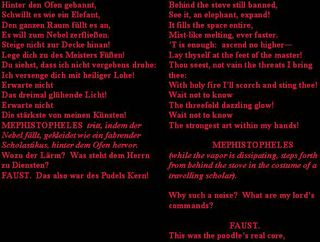"Let’s Get On With It Mrs. Chancellor"

The Germans didn’t waste much time with that historic 'first woman' bullshit.
This headline would lead one to believe that she’s sort of expected to produce miracles single-handedly. If anyone has high hopes, they’re not saying much. There’s an awful lot of talk about the high price paid for this negotiated settlement. Eight ministers will be from the SPD, and six plus chancellor and speaker from the CDU...so basically, eight and eight with the coveted (until it was attained) leadership role going to the CDU. This pretty much mirrors their respective number of Bundestag seats (222 to 226) as fairly as it possibly can. Frau Doktor Merkel is a physicist, I’m pretty sure she’s capable of doing the math.
The local paper ran this interactive map "Where Women Are/Were in Power"―The first thing you notice is that, although we’ve all heard enough about Angela Merkel’s looks to last a lifetime...she’s one of the best looking, compared to female heads of state the world over (Where does that leave us? Where are the future Pamela Andersons who are going to step up to the plate here people?).
Historic? Sure, but Merkel herself played down the red letter day when prompted by female jounalists to express how she was feeling or acknowledge this step in Germany’s history..."Mir geht’s gut" (I’m well), she said, describing herself as being focused on the tremendous amount of work in front of her. Deutsche Welle had this to say about the all-around Lage der Frauen (situation of women) in Deutschland.
Management circles in German business are still a man’s world. A meager 11 percent of German companies have a woman in management positions, compared to an EU average of 14 percent. With 40 percent, the United States and Canada are way, way ahead.
Barbara Schaeffer-Hegel, founder of the European Academy for Women in Politics and Business (EAF) in Berlin, attributes the shortfall to German cultural traditions. "The mother ideology of the Third Reich and the conservative women’s’ politics in the postwar time have left deep marks," she explains. "The division of the areas of public and private were cemented with the exclusive responsibility of women for the private areas (of life) – caring for children and ensuring the welfare of the family."
In addition to the mentality, there’s also an institutional problem, the former professor of pedagogy said. The daycare infrastructure in Germany is underdeveloped, as is the preschool system. And companies are often reluctant to trust women with important projects because they could get pregnant at any time. In other words, latent discrimination is perpetuate throughout the business culture here.
"It’s a lot harder to reconcile having a family and a career in Germany than it is in most developing countries and almost all industrial nations," she says.
There’s still an enormous paradox here: Most of the women recently making headlines for making it to the inner circle of managers have been imported from abroad. Karin Dorrepaal is Dutch, Lucrezia Reichlin is Italian and Beatrice Weder di Mauro has dual Swiss and Italian citizenship. But that comes as little surprise to Schaeffer-Hegel.
"The word ‘Rabenmütter’ (raven mother, a term loosely translated as ‘bad mom with latchkey kids’) only exists in Germany," she says. "In other European countries and in America, women achieve huge things and still manage to have kids. Nor do they feel like bad mothers for doing so."
It seems odd that the Germans spend so much time wringing their hands about the low birthrate here, without ever mentioning detrimental social mores or infrastructures.









